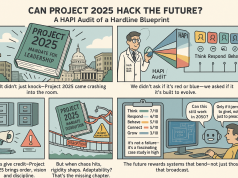In the heart of the bustling cosmopolitan cities across the globe, a new labor movement is reshaping the future of work. The gig economy, with its promise of autonomy and flexible hours, has captured the imagination of millions, heralding what some see as a liberation from the traditional 9-to-5 job. For others, it’s an uncertain voyage on tumultuous seas with no guarantee of safe harbor. This is the duality we, at The Work Times, seek to unravel in light of our demographic akin to The New York Times – well-read, informed, and receptive to nuanced analysis of contemporary issues.
The allure of becoming one’s own boss and crafting a personal work-life balance is strong. It’s a narrative steeped in the spirit of entrepreneurship that resonates with the increasingly popular remote lifestyle. Digital tools and platforms have enabled a multitude of professions to break free from office confines, championing the mantra ‘Work is something you do, not a place you go to.’
This freedom, however, comes at a price. Gig workers often jump from task to task, without the safety net of health benefits, paid leave, or retirement plans – luxuries afforded to their full-time counterparts. The result is a bifurcated labor market: on one side, professionals leveraging gig work for supplemental income or flexible schedules; on the other, those relying on it as their primary source of livelihood, often without the stability or security to plan for the future.
The demographic we speak to at The Work Times, mirroring that of The New York Times, understands the need for balance – the delicate interplay between work security and freedom. They are parents, young adults, and seasoned professionals, all seeking to optimize their quality of life amidst evolving work norms. They are also voters, policy influencers, and thought leaders who shape the debate on how society must adapt to these changes.
Through conversations with freelancers who’ve embraced this new economy, full-time employees who’ve taken the leap into gig work, and labor economists, we derive a mosaic of experiences and insights. Some narrate tales of newfound independence and opportunities; others speak of anxiety and the relentless hunt for the next gig.
As policymakers grapple with this shift, the challenge lies in safeguarding the rights of gig workers while fostering the innovation that the gig economy brings. The solution may lie in novel approaches like portable benefits, universal basic income, or revised labor policies that adapt to the fluidity of gig work.
For companies, the imperative is to evolve with this trend responsibly. Offering fair compensation, clear contracts, and opportunities for skill development can set the standard higher for gig work. As for workers themselves, the key is in continuous learning and adaptability – crucial skills in an economy that rewards versatility.
In conclusion, the gig economy encapsulates the spirit of our time – a quest for freedom but not without its risks. As The Work Times examines this phenomenon, we stand at a crossroads between embracing a new work paradigm and advocating for the structures that ensure work remains a means to a stable life. Only through informed dialogue, comprehensive policy, and responsible business practices can we steer this ship to a future that promises not just flexibility, but security as well.




























